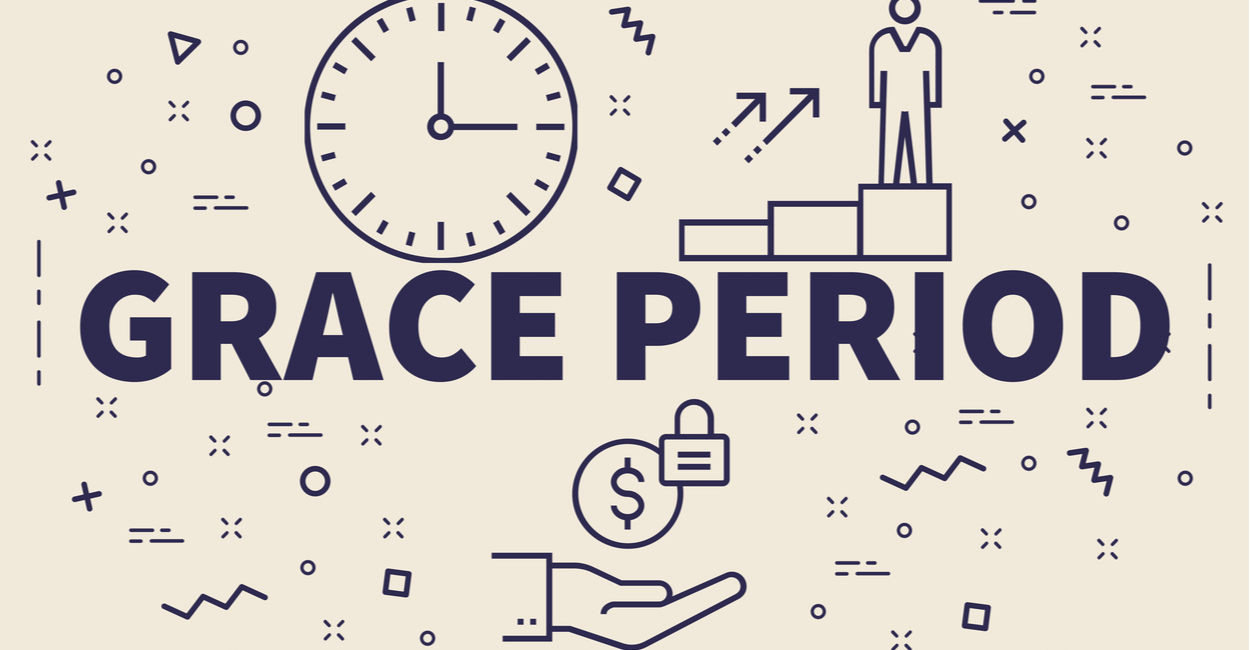

Finance
How Long Is Afterpay Grace Period
Published: February 19, 2024
Learn about the grace period for Afterpay and how it affects your finances. Understand the implications of delaying payments and managing your budget effectively.
(Many of the links in this article redirect to a specific reviewed product. Your purchase of these products through affiliate links helps to generate commission for LiveWell, at no extra cost. Learn more)
Table of Contents
Introduction
Welcome to the world of Afterpay, where shopping becomes more flexible and manageable. In this article, we’ll delve into the concept of the Afterpay grace period, shedding light on its duration, benefits, risks, and effective management tips. Afterpay has revolutionized the way people shop, offering a convenient “buy now, pay later” option that allows customers to spread their payments over several weeks. Understanding the Afterpay grace period is essential for making informed financial decisions and maximizing the benefits of this popular payment platform.
As we explore the Afterpay grace period, we’ll uncover the significance of this feature in empowering consumers to make purchases without immediate full payment. By gaining insights into the duration of the grace period, consumers can effectively plan their budgets and avoid potential pitfalls associated with deferred payments. Additionally, we’ll discuss the advantages and risks of utilizing the Afterpay grace period, providing valuable tips for optimizing this payment method while minimizing financial strain.
Whether you’re a seasoned Afterpay user or considering embracing this payment solution for the first time, understanding the intricacies of the grace period is crucial for maintaining financial stability and making well-informed purchasing decisions. So, let’s embark on this enlightening journey to unravel the mysteries of the Afterpay grace period and harness its benefits while mitigating its potential drawbacks.
Understanding Afterpay Grace Period
Before we delve into the specifics of the Afterpay grace period, it’s essential to grasp the fundamental concept of this innovative payment solution. Afterpay is a popular “buy now, pay later” platform that allows consumers to make purchases and pay for them in four interest-free installments, spread over six weeks. The Afterpay grace period refers to the additional time provided for making a payment without incurring late fees or penalties.
Once a purchase is made using Afterpay, the total amount is divided into four equal installments, with the first installment due at the time of the transaction. The subsequent installments are scheduled for payment every two weeks, providing a convenient and structured approach to managing expenses. The Afterpay grace period typically extends for 10 days beyond the due date of each installment, offering customers a brief window of flexibility for completing their payments without consequences.
During the grace period, customers can make the required installment payment without incurring late fees, thereby avoiding unnecessary financial stress. It’s important to note that while Afterpay does not charge traditional interest on purchases, late fees may apply if payments are not made within the grace period. Understanding the duration and implications of the Afterpay grace period is crucial for effectively utilizing this payment method while safeguarding one’s financial well-being.
By comprehending the Afterpay grace period, consumers can make informed decisions regarding their purchases and budget management. This knowledge empowers individuals to leverage the benefits of Afterpay while exercising responsible financial behavior. As we continue our exploration, we’ll uncover the specific duration of the Afterpay grace period and its implications for users, enabling a deeper understanding of this integral aspect of the Afterpay experience.
How Long is Afterpay Grace Period
The Afterpay grace period, a pivotal feature of the payment platform, extends for a duration of 10 days beyond the due date of each installment. This means that once an installment payment is due, customers have an additional 10-day window to make the payment without incurring late fees. This grace period provides a valuable buffer, allowing users to manage their cash flow and navigate unexpected financial fluctuations without immediate repercussions.
Understanding the 10-day Afterpay grace period is essential for effectively planning and managing one’s finances. It offers customers the flexibility to align their payments with their income schedule, ensuring that they can fulfill their obligations without undue strain. By leveraging this grace period, individuals can navigate temporary financial constraints or unexpected expenses while maintaining their payment commitments within a reasonable timeframe.
Moreover, the 10-day grace period reflects Afterpay’s commitment to empowering responsible spending and financial management. It acknowledges that occasional delays in payments may occur due to various factors, and the grace period serves as a supportive mechanism for customers to fulfill their payment obligations without punitive measures.
By recognizing the duration of the Afterpay grace period and its role in promoting financial flexibility, users can confidently engage with the platform, knowing that they have a brief but meaningful window to address their payment responsibilities. This knowledge fosters a sense of empowerment and control over one’s financial commitments, contributing to a positive and constructive consumer experience with Afterpay.
Benefits of Afterpay Grace Period
The Afterpay grace period offers several notable benefits that enhance the overall user experience and contribute to responsible financial management. Understanding and leveraging these benefits can significantly impact a consumer’s purchasing decisions and budgetary control.
- Flexibility: The 10-day grace period provides users with flexibility in managing their payments, accommodating unforeseen financial circumstances or timing misalignments with income receipts. This flexibility can alleviate short-term financial stress and enhance overall budget management.
- Reduced Financial Strain: By availing of the grace period, customers can navigate temporary cash flow challenges without incurring late fees. This can prevent unnecessary financial strain and support individuals in meeting their payment obligations without undue pressure.
- Opportunity for Adjustment: The grace period offers an opportunity for users to adjust their payment schedules if needed, aligning their installment payments with their financial circumstances. This adaptability contributes to a more seamless and manageable payment experience.
- Enhanced User Confidence: Knowing that a grace period is in place can instill confidence in users, assuring them that they have a reasonable window to fulfill their payment obligations without immediate consequences. This can positively impact consumer trust and satisfaction with the Afterpay platform.
- Support for Responsible Spending: The grace period aligns with Afterpay’s commitment to promoting responsible spending and financial management. It acknowledges that occasional delays in payments may occur and provides a supportive mechanism for users to address their obligations without punitive measures.
These benefits collectively contribute to a more positive and empowering consumer experience with Afterpay, fostering a sense of control, understanding, and confidence in managing payment responsibilities. By recognizing and leveraging the advantages of the grace period, users can navigate their financial commitments with greater ease and peace of mind, thereby maximizing the benefits of the Afterpay platform.
Risks of Afterpay Grace Period
While the Afterpay grace period offers valuable flexibility and support for users, it is essential to be aware of potential risks associated with its utilization. Understanding these risks can empower consumers to make informed decisions and effectively manage their financial responsibilities.
- Accumulation of Deferred Payments: One potential risk of relying on the grace period is the accumulation of deferred payments. If users consistently rely on the grace period to delay their installment payments, it can lead to a buildup of outstanding balances, potentially impacting their overall financial stability.
- Impact on Budget Planning: Depending excessively on the grace period can disrupt budget planning and financial management. Users may find it challenging to align their payment obligations with their income cycles, leading to potential budgetary strain and difficulties in meeting subsequent payment deadlines.
- Accrual of Late Fees: While the grace period provides a buffer for making payments without incurring late fees, consistent reliance on this feature can result in the accrual of such fees over time. This can lead to additional financial burdens and diminish the benefits of the interest-free installment structure.
- Potential Credit Score Impact: Delays in making Afterpay installment payments, even within the grace period, can impact an individual’s credit score if such delays become frequent or prolonged. It is important to recognize the potential implications for creditworthiness and financial standing.
- Long-Term Financial Consequences: Continuously relying on the grace period to manage payments may have long-term financial consequences, affecting an individual’s ability to effectively control their spending and manage their financial commitments responsibly.
By acknowledging these risks, users can proactively mitigate potential challenges associated with the Afterpay grace period. It is crucial to strike a balance between leveraging the grace period for temporary financial adjustments and maintaining disciplined payment practices to avoid the accumulation of deferred payments and associated risks.
Effectively managing these risks involves maintaining a proactive approach to budgeting, aligning installment payments with income receipts, and utilizing the grace period judiciously to address short-term financial fluctuations without compromising long-term financial stability.
Tips for Managing Afterpay Grace Period
Effectively managing the Afterpay grace period is essential for maintaining financial discipline and maximizing the benefits of this payment solution. By implementing practical tips and strategies, users can navigate the grace period with confidence, ensuring responsible payment practices and prudent financial management.
- Payment Schedule Alignment: Align Afterpay installment due dates with income receipts to facilitate timely payments, reducing the reliance on the grace period for financial adjustments.
- Budget Planning: Incorporate Afterpay installment payments into budget planning, ensuring that funds are allocated for these obligations without disrupting overall financial stability.
- Grace Period Awareness: Stay mindful of the 10-day grace period duration for each installment, utilizing it judiciously for genuine financial adjustments while avoiding consistent reliance on deferred payments.
- Timely Payment Reminders: Set up payment reminders or notifications to prompt timely installment payments, reducing the likelihood of requiring the grace period for delayed payments.
- Emergency Fund Provision: Maintain an emergency fund to address unexpected expenses, reducing the need to rely solely on the grace period for short-term financial challenges.
- Payment Prioritization: Prioritize Afterpay installment payments within the grace period to prevent the accumulation of deferred balances and potential late fees.
- Grace Period Utilization: Utilize the grace period sparingly and purposefully, reserving it for genuine financial adjustments or unforeseen circumstances rather than habitual payment delays.
- Financial Monitoring: Regularly review and monitor financial transactions and obligations, ensuring proactive management of Afterpay payments and utilization of the grace period.
By implementing these tips, users can proactively manage the Afterpay grace period, fostering responsible payment practices and effective financial planning. This approach enables individuals to harness the benefits of Afterpay while mitigating the potential risks associated with deferred payments, ultimately contributing to a more sustainable and controlled financial journey.
Conclusion
The Afterpay grace period serves as a valuable component of the “buy now, pay later” experience, offering users flexibility and support in managing their installment payments. By understanding the duration, benefits, risks, and effective management tips associated with the grace period, consumers can navigate their financial commitments with confidence and responsibility.
Recognizing the 10-day duration of the grace period empowers users to leverage this feature judiciously, aligning their payment schedules with their financial circumstances while avoiding the accumulation of deferred balances and late fees. The grace period’s benefits, including enhanced flexibility, reduced financial strain, and support for responsible spending, contribute to a positive consumer experience with Afterpay, fostering a sense of control and confidence in managing payment obligations.
However, it is crucial for users to be mindful of the potential risks associated with excessive reliance on the grace period, such as the accumulation of deferred payments, budgetary disruptions, and potential credit score impact. By proactively implementing practical tips for managing the grace period, individuals can maintain disciplined payment practices, align installment due dates with their income cycles, and utilize the grace period purposefully for genuine financial adjustments.
In conclusion, the Afterpay grace period, when approached with awareness and prudence, can enhance the overall convenience and effectiveness of the Afterpay payment platform. By embracing responsible financial management practices and leveraging the grace period as a supportive tool, users can optimize their Afterpay experience while maintaining control over their financial well-being.
As consumers continue to engage with Afterpay’s innovative payment solution, understanding and effectively managing the grace period will be instrumental in fostering sustainable and empowered financial decisions, ultimately contributing to a positive and fulfilling consumer journey with Afterpay.














